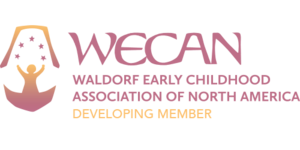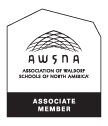Sharing AWSNA's Core Principles and Musings On Waldorf Education's Relevance for Today's World
Edited from a letter originally written by our Head of School for our weekly school newsletter, January 10, 2017:
Dear parents and friends,
Over the holiday I took a big break from all things electronic: no email, phone or movies for 10 days. Instead, I savored the opportunity to sleep and dream deeply, to exercise hard every day with my family, to eat well (if a tad bit too much!) and to read a lot. I've been wandering through all kinds of books and seeing threads and connections everywhere I go, which I'll attempt to share over the next weeks and months.
I have been thinking broadly about the role of education in our lives and in American society and the unique niche that Waldorf education in particular occupies.
Recently, the Association of Waldorf Schools of North America (AWSNA), of which Madrona School is a developing member school, ratified a new set of guiding principles for all Waldorf Schools. This document was the product of many hours of work by a broad constituency of representatives from all of our member schools. I am excited to share it with you here, as it articulates in a newly concise language the core principles underlying our educational philosophy. I am looking forward to using it increasingly to inform, guide and explain our education.
The second principle particularly caught my eye in writing today. It says: Waldorf schools foster social renewal by cultivating human capacities in service to the individual and to society. Waldorf schools foster development so that, throughout life, individuals are motivated to serve humanity with strength of will, depth of feeling and clarity of thought, and the ability to work with others. The educational program is designed to strengthen these fundamental human capacities in our students.
I am increasingly compelled by this statement because of reading Thomas Friedman's newest book, Thank You for Being Late, in which he sketches the almost unimaginably accelerating changes worldwide in digital connectivity, climate change, and globalization. Its makes for a fascinating (if sobering) read and I highly recommend it if you are interested in trying to understand the many tectonic shifts that are happening on various fronts simultaneously.
As I read along, the perpetual question in the back of my mind is: OK, so if all of this is true, how do we educate our children for an unknown and increasingly unknowable future? How can we cultivate in them the qualities of character that they will need to succeed in such a new world order? Can we actually cultivate the flexibility, resourcefulness, confidence, courage and engagement in lifelong learning that Friedman posits will be increasingly necessary for survival?
While there is much still to wrestle with in this book and how it relates to education, I do see a germ of hope in considering these two things side by side: Waldorf education's mission to cultivate a commitment to the service of humanity paired with the vast and turbulent needs that will be unfolding in new, never-before-imagined ways.
I don't feel I have all the answers, but this is to me an interesting question: How is our education uniquely preparing the children for the rapidly morphing future? I'd love to open the question for a wider dialogue. You have chosen this educational stream for your child. Would you be willing to share with our community what you perceive to be the merit of this style of education? I look forward to hearing from you, and sharing your thoughts in newsletters to come.
Sincerely,
Missi



